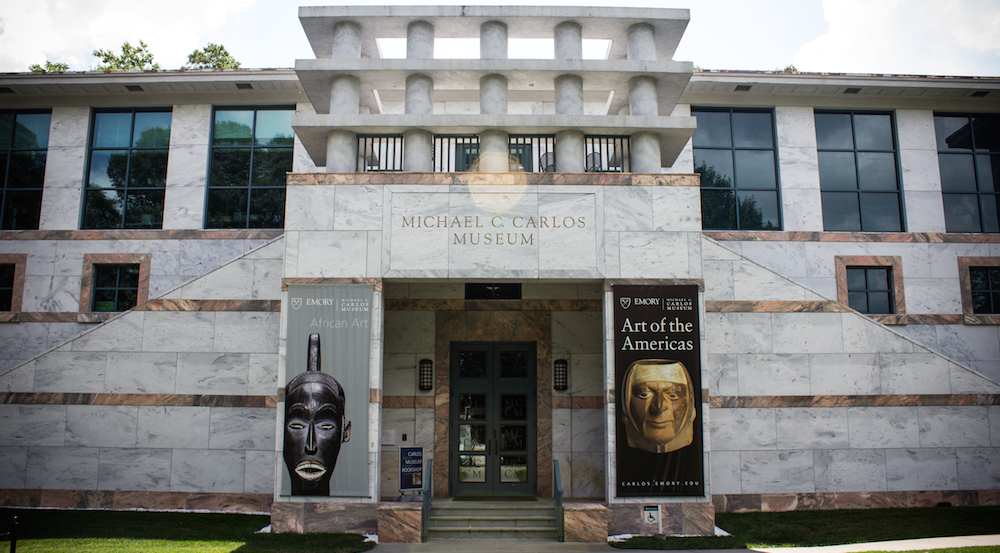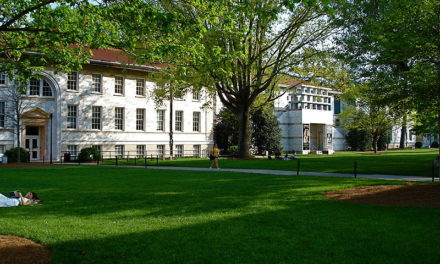A copy of William Shakespeare’s “First Folio,” the first collected edition of his plays, will arrive at Emory University in 2016 and will be displayed at the Michael C. Carlos Museum, according to a Feb. 26 University press release.
The “First Folio,” held by the Folger Shakespeare Library in Washington, D.C., will tour all 50 states, and the Library chose Emory as the location for Georgia’s stop. The tour, starting in 2016, marks the 400th anniversary of the death of the 16th century poet, playwright and actor.
In 1616, two of Shakespeare’s actors, John Heminges and Henry Condell, assembled the folio after Shakespeare’s death and published it in 1623, according to the Folger’s website. The “First Folio” is the only source for 18 of Shakespeare’s 37 plays. Without it, plays such as Macbeth, Julius Caesar and The Tempest might have been lost.
English Professor Sheila Cavanagh co-directed of the Folio Project, which has been working to bring the folio to Emory, along with Head of Digital Archives for the Manuscripts, Archives and Rare Books Library (MARBL) Erika Farr.
Cavanagh wrote in an email to the Wheel that the “First Folio” will be housed in the Howett Paper Gallery at the Carlos Museum and that the folio is likely to arrive sometime during fall 2016. The exact date of the folio’s arrival will be available sometime this April.
Cavanagh wrote that Emory was likely chosen because of the robust series of events and exhibits MARBL and Woodruff Library offered, and that Emory can demonstrate substantial experience in creating the kinds of programming Cavanagh and her team are proposing. She added that the Carlos Museum and MARBL are both extremely well known and well regarded internationally.
“The Folger knows that the folio will be safe and will be shared with the public in Georgia and internationally,” she wrote in an email to the Wheel.
According to MARBL Director Rosemary Magee, the “First Folio” is expected to be at Emory for approximately a month during 2016. Magee wrote in an email to the Wheel that, in addition to meeting environmental and security requirements, the Folger Shakespeare Library emphasized programming ideas that would “reach a broad audience and that would immerse that audience in the words and world of Shakespeare.”
She noted that there would be a range of activities, including exhibitions in both the Carlos Museum and MARBL, poetry readings, artistic installations throughout campus, workshops and panel discussions and visiting scholars and performers. Ideas already in place include “a related postcard exhibit and another exhibit that focuses on Othello and addresses questions of race,” according to Magee.
Magee also wrote that this will be a community-wide event and that expected community collaborators are Theater Emory, the Department of Music, Red Wall Studio, the Shakespeare Tavern and others.
The exhibit will be the highlight of a planned “Year of Shakespeare” which will include year-long events centered around “seek[ing] to inspire full immersion into the works of Shakespeare and to engage scholarly and artistic assessment of Shakespeare’s influence throughout history and in our own times,” Magee wrote.
Magee added that although they have developed many ideas, the Carlos Museum and MARBL would now be convening a committee to make more specific plans for programs that will extend through 2016. Faculty, staff, alumni and students will be invited to join the committee.
According to Cavanagh, during the 2016 Shakespeare anniversary year, there will likely be significant events all over the world.
“This is a chance for Emory to share what it’s best at while welcoming the world to [its] campus both in person and virtually,” she wrote.
College senior Rebecca Feuer, who is currently writing her honors thesis on three of Shakespeare’s comedies, wrote in an email to the Wheel that she is very excited about the “First Folio” coming to Emory.
“My past studies of his works along with my most recent project have shown me what a genius Shakespeare truly was. He was a man of, and ahead of, his time, creating works that demonstrated genuine insight into the world around him, addressing issues we still deal with today,” she wrote. “It is an honor to have Emory take part in exhibiting a physical reminder of the great William Shakespeare.”
— By Annie McGrew, Asst. News Editor







